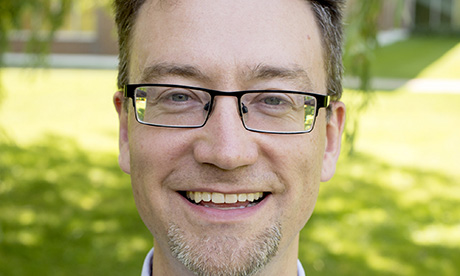The Catholic Church seems to be tripping over itself to avoid issuing a clear and definitive apology for the church’s role in Canada’s residential schools after the remains of 215 children were reportedly discovered outside a Catholic-run school in Kamloops.
While concerns about liability may be a factor, one significant barrier is theological.
In traditional Catholic theology, the church can act collectively, but as the Body of Christ it cannot sin.
Only members, including leaders, sin.
When Catholics do something good, this may be ascribed to the church. When Catholics harm others, it is the action of individuals.
Pope John Paul II is perceived to have apologised for many church wrongs, but he did not claim the church itself was the agent of sin.
In a highly public “Day of Pardon” in 2000, he asked God’s forgiveness for thousands of years’ worth of sins committed by members of the church, but not by the church as an institution.
Consider this 2013 statement to the Truth and Reconciliation Commission (TRC) by Vancouver Archbishop Michael Miller: “I wish to apologise sincerely and profoundly … for the anguish caused by the deplorable conduct of those Catholics who perpetrated mistreatment of any kind in these residential schools.”
Note that he apologised for harm done by individual Catholics, but not by the church itself.
This logic surely shaped Pope Francis’ deeply inadequate statement, released this past weekend, about “his closeness to the Canadian people who have been traumatized” by the recent shocking discovery in Kamloops.
The statement places the church as an entity on the side of the shock, but not as the entity responsible for causing it. An actual apology was notably absent.
A church that is sinless by definition is a problematic abstraction, unmoored from history and experience.
Statements premised on this assumption will not speak to the church’s deep complicity in a destructive system.
Indeed, unless the church openly and specifically acknowledges its own culpability, why would anyone believe that the church itself may be an active agent in reconciliation?
For all churches, there is a temptation to speak to, but not to take, meaningful action to demonstrate a commitment to make amends and develop structures that promote truly just relationships.
But truthful words are also actions.
An apology is never sufficient, but it certainly is important and necessary.
Catholic theology does develop and the tone can change over time.
One key precedent was set in the 1997 Drancy Declaration by French Catholic Bishops regarding complicity in the Holocaust.
They said that the church itself, not just individuals, failed to educate the consciences of its members, and failed to protest the persecution of Jews.
Their statement also showed that a national conference of bishops can indeed take action to speak definitively about its own past and commitment to a future.
And as further evidence of gradual change: Archbishop Miller, whose 2013 TRC statement is cited above, released a statement shortly after the Kamloops discovery stating that “the Church was unquestionably wrong in implementing a government colonialist policy.”
Nevertheless, churches often dwell on distinctions that are only meaningful to insiders. Technical distinctions about jurisdiction involving residential schools, which the church has made in the past, are not irrelevant, but also come across as attempting to control the narrative and deflect responsibility.
For theological reasons, Pope John Paul II did not use the words “sorry” or “apology,” but his Day of Pardon actions were reported and judged as if they were apologies.
My advice to the Canadian bishops and to the Pope is to acknowledge what happened. Do not be vague or use a passive voice.
- Name the sins committed by the church as an institution.
- Take responsibility on behalf of the church.
- Commit to future actions and forms of accountability.
Make a public apology in a ritually appropriate and solemn way. Pointing back to previous statements by bishops or religious orders will not be adequate.
The present moment demands more.
Do not ask former students or their families for forgiveness. This can shift the onus and public pressure on survivors to immediately grant it.
Take seriously the many voices calling specifically for an apology.
Recognize you are not in control of how the statement will be received and what further actions you will be called to make.
This very recognition is one of the amends the church needs to make.
A public apology – a real one – is only one step, but in this case, it is essential.
- Jeremy M. Bergen is an associate professor of religious studies and theological studies at Conrad Grebel University College, University of Waterloo. He is the author of Ecclesial Repentance: The Churches Confront Their Sinful Pasts.
- First published by the Globe and Mail. Republished with permission.
News category: Analysis and Comment.




